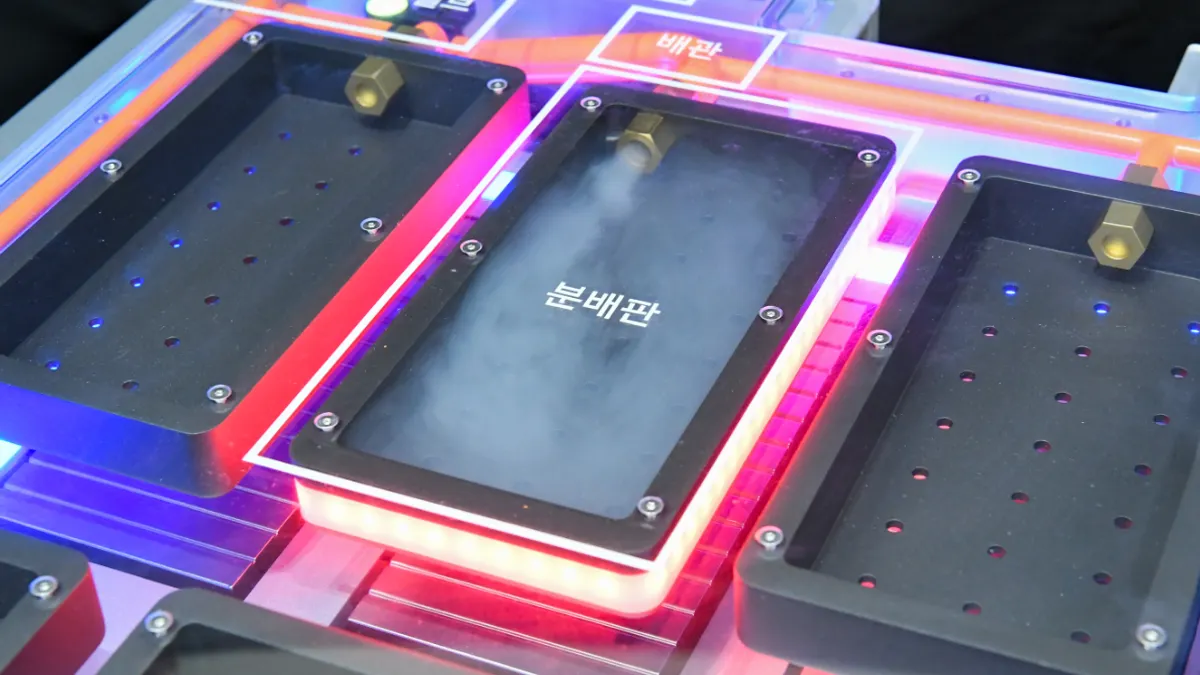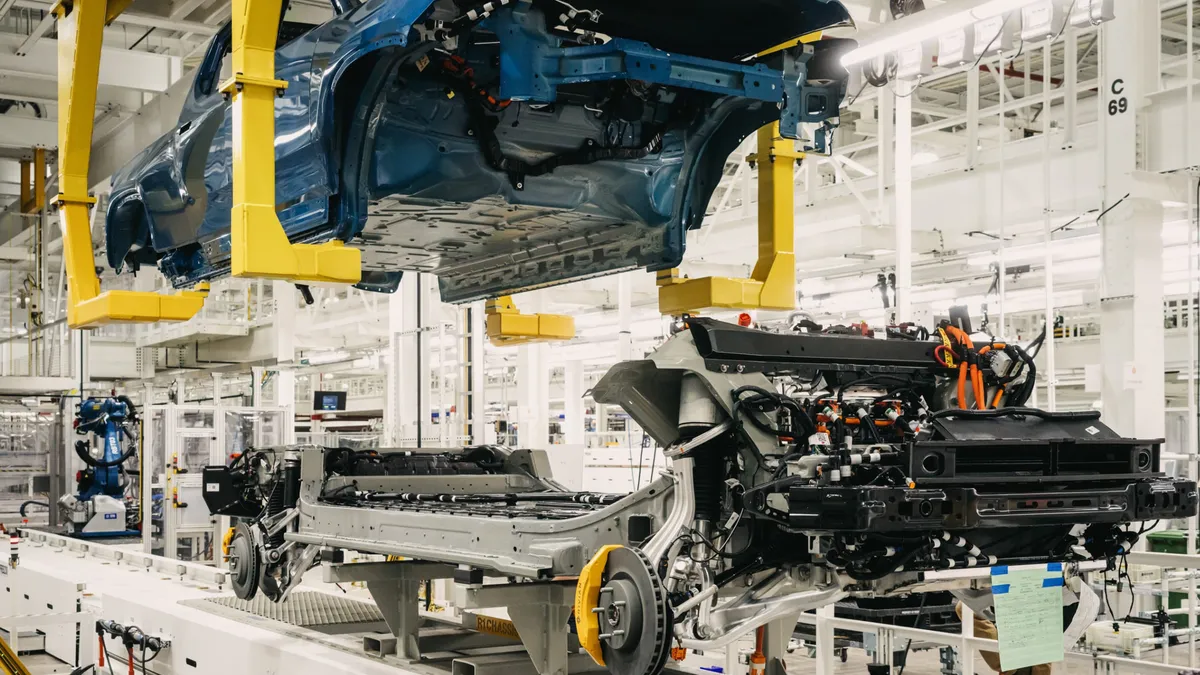Hyundai Mobis, the parts manufacturing arm of Hyundai Motor Group, has developed technology that can extinguish an electric vehicle battery cell fire and prevent thermal runaway, the company announced April 14.
The system works by spraying a fire suppressant to extinguish a fire within five minutes of ignition, before it can move to adjacent cells and spark thermal runaway, a process through which heat continues to increase in a self-reinforcing chain reaction.
Hyundai said the new technology is the first to prevent thermal runaway, not just delay it, with the use of heat-resistant materials. Sensors monitor battery temperature and voltage in real time, and software commands when and where the fire extinguisher should be sprayed, the release stated.
Thermal runaway is one of the primary risks of lithium-ion batteries used in EVs and can lead to deadly fires and explosions. As electric vehicle technology evolves, providing greater range and faster charging, automakers and parts manufacturers are addressing the safety risks of storing large amounts of energy.
In addition to Hyundai, Mercedes-Benz Group and battery technology company Factorial have developed a battery made of a solid-state electrolyte, which reduces the risk of thermal runaway and fires.
Countries around the world have mandated safety measures to prevent thermal runaway, including China’s 2021 requirement that EVs contain early battery failure detection systems. The National Highway Traffic Safety Administration published a final rule, effective in March, requiring car manufacturers to document steps they have taken to test and implement EV safety features, including thermal runaway warning systems.
“As large electric vehicles with improved driving range appear, the safety standards for battery systems are becoming more stringent,” Park Yong Jun, VP of the battery system R&D group at Hyundai Mobis, said in a statement. He added that the company will continue to develop advanced battery systems “that meet and exceed global standards.”
Hyundai Mobis has applied for three domestic and international patents related to the new system.
The company has also developed a material to prevent overheating in EV batteries. Announced last year, the material made of aluminum alloy and refrigerant lowers the temperature of an EV battery system even during rapid charging.













